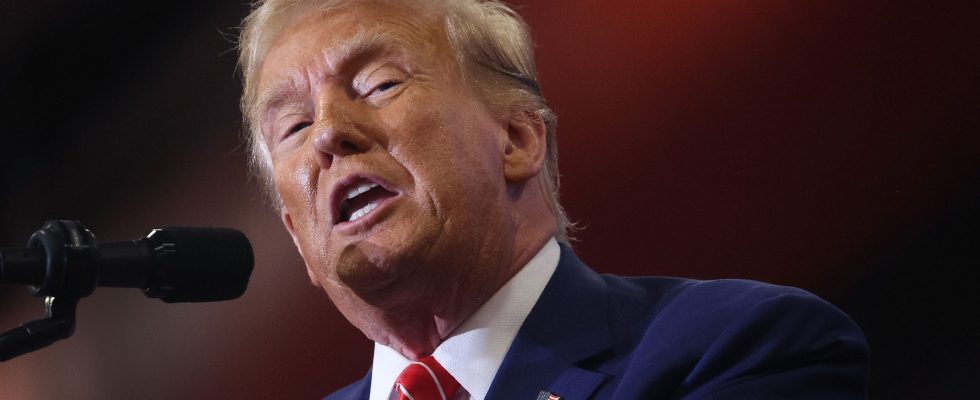Iowa has just 3 million residents, the equivalent of the population of Chicago. And yet, every four years, he plays a key role in the presidential election. This small rural state is the first to vote in the primaries. This year, the stakes in the election lie with the Republicans, who must choose between several candidates. For months, they have been crisscrossing the vast expanses of corn and soybeans, from agricultural fairs to barbecues, and refining their message. Everyone put a lot of effort into the field, including Donald Trump, who is still in the lead with a lead of more than 30 points. He wants to avoid the slap in the face of 2016, when he came in second position despite his domination in the polls.
Iowa is the first full-scale test, after months of campaigning. “It’s like dipping a thermometer into the electorate to take their temperature about their preferences,” says Dennis Goldford, a professor at Drake University. Iowa also signals to the rest of the country which candidates are the most popular .” A win attracts media and donor attention, and builds momentum. In 2008, no one was betting on the chances of the unknown Senator Barack Obama against Hillary Clinton. But his victory in Iowa served as a springboard. “We, the Americans, have delegated our first glimpse of the candidates to 1.4% of the American population who live in Iowa and New Hampshire” (primaries on January 23), summarizes Elaine Kamarck, researcher at the Brookings Institution.
Iowa owes its glory to Democrat Jimmy Carter
The State became decisive “by accident”, continues Dennis Goldford. Until 1968, party leaders controlled the candidate nomination process during the Convention held the summer before the election. That year, Democratic leaders selected Hubert Humphrey, Lyndon Johnson’s vice president, who was very unpopular for his support for the Vietnam War. This choice triggered major demonstrations during the Chicago Convention. From 1972, the party therefore decided to reform the procedure to make it more transparent. At the same time, Iowa chose to move up its election date to January – becoming the first to vote – in order to have enough time for its very lengthy delegate designation process. It relies on an archaic “caucus” system that requires voters to go to a school or church at 7 p.m. on a Monday in January and stay there all evening before finally voting.
It is to Jimmy Carter that the state owes its political glory. In 1976, the obscure ex-governor of Georgia bet everything on Iowa by practically camping there for fourteen months. His victory propelled him to the White House, cementing the state’s reputation as kingmaker. However, it is not a perfect barometer, especially on the Republican side. Since George W. Bush in 2000, no caucus winner has secured the party’s nomination. No doubt because the very high proportion of white evangelicals tends to choose candidates who are too conservative. Among the Democrats, on the other hand, all the winners since 2000 have won the party’s nomination, except in 2020 when Joe Biden finished in fourth place.
But this year, the small Midwestern state is losing its influence. For the first time in more than forty years, the Democrats have changed their calendar, and Iowa no longer opens the primaries. They believe that he is far too white, old and rural, and therefore unrepresentative of their electorate, young, urban and mixed. Additionally, in 2020, a faulty app supposed to count votes caused chaos on caucus night. Under pressure from Biden, it is South Carolina, dominated by a large African-American community, which will kick off. On the Republican side, the battle is mainly for second place between Florida Governor Ron DeSantis and former UN ambassador Nikki Haley, neck and neck in the polls. But if Donald Trump wins Iowa and New Hampshire, he’s almost certain to be the nominee.
.
